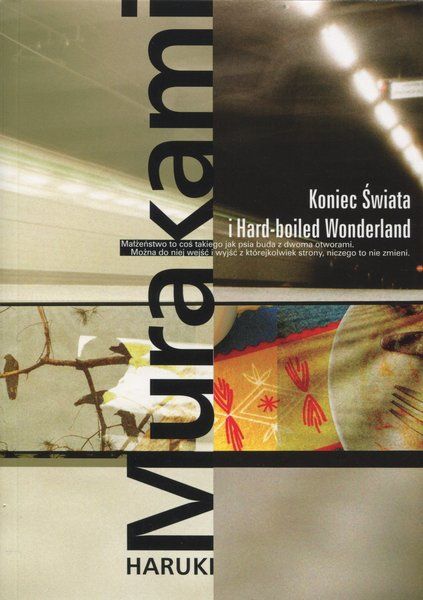

Eva Kor survived Auschwitz with her twin sister Miriam when they were around ten years old (Meadows et al. Mengele had several hundred twins at his disposal, and he made notoriously cruel experiments on them” (Koren 1). Mengele plucked out from the masses that passed before him, twins, and unusual mutations. Yehuda Koren studied Mengele’s obsession with a family of Jewish dwarfs, saying “Like a demonic impresario casting the ultimate freak show. Mengele was known for his obsession with abnormalities and with twins. Josef Mengele, who “conducted deadly genetics experiments on the inmates of Auschwitz” (“Uncomfortable Truths” 1). Perhaps the most disturbing example of characterization in this novel is the Scientist as Dr. This suggests that Murakami knew when to draw back and did so accordingly so as not to supersede the unspoken guidelines that writers of Holocaust literature often feel pressure to adhere to.Ĭharacterization is another tool that marks Hard-Boiled Wonderland as an allegory for the Holocaust. More than just a stylistic move, it is likely that Murakami chose to be enigmatic and elude standard elements to avoid intimate detailing of his characters, further removing readers from their identities and in doing so, reducing the likelihood that readers would form attachments to the characters. Murakami’s descriptions of characters do not go much deeper than the most basic information required to outline a character. Metz’s reasoning explains why Murakami was intentionally vague with his characters’ identities, offering titles and labels rather than names.įor instance, Murakami labels his characters as the Librarian, the Scientist, the Colonel, the Semiotecs, The Calcutecs, and so on, rendering even the Narrator and protagonist innominate. Jeremy Metz suggests that the pressure of this ethical dilemma has warped the quality and truth of Holocaust literature because of the psychosocial demands that writers of genocide or trauma-related literature face (Metz). As some observers note, writers of Holocaust literature can be torn between the desire to create deep characters out of the perpetrators and the fear that in so doing, readers might find unintended shreds of sympathy for true villains. Holocaust literature is both a delicate and powerful subject for many to read, but the confines of writing such literature are perhaps even more uncomfortable. One of the clearest indicators of this work’s allegorical representation of the Holocaust is Murakami’s careful use of vagueness.


 0 kommentar(er)
0 kommentar(er)
